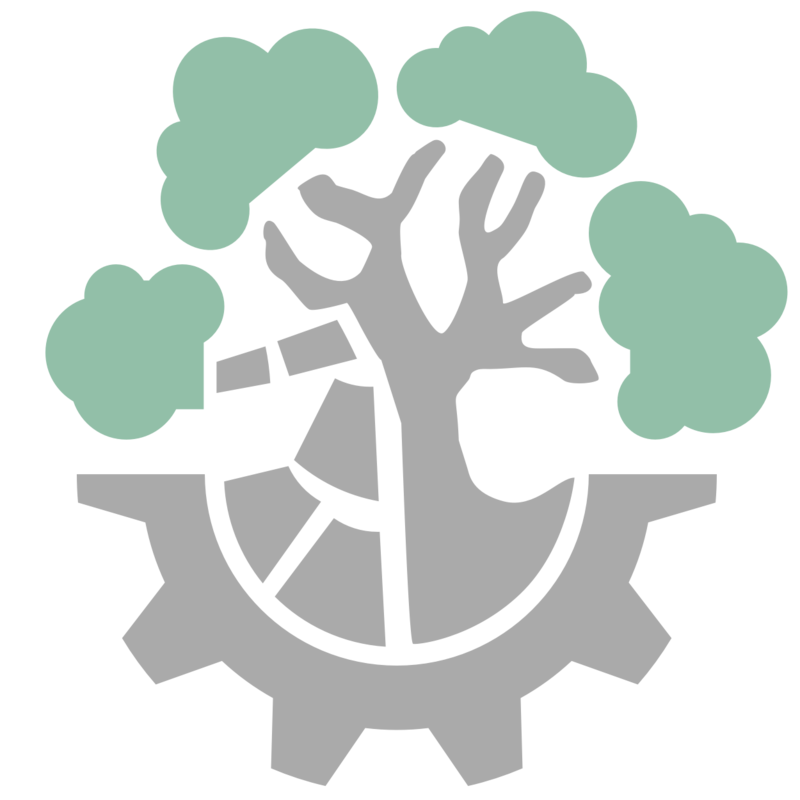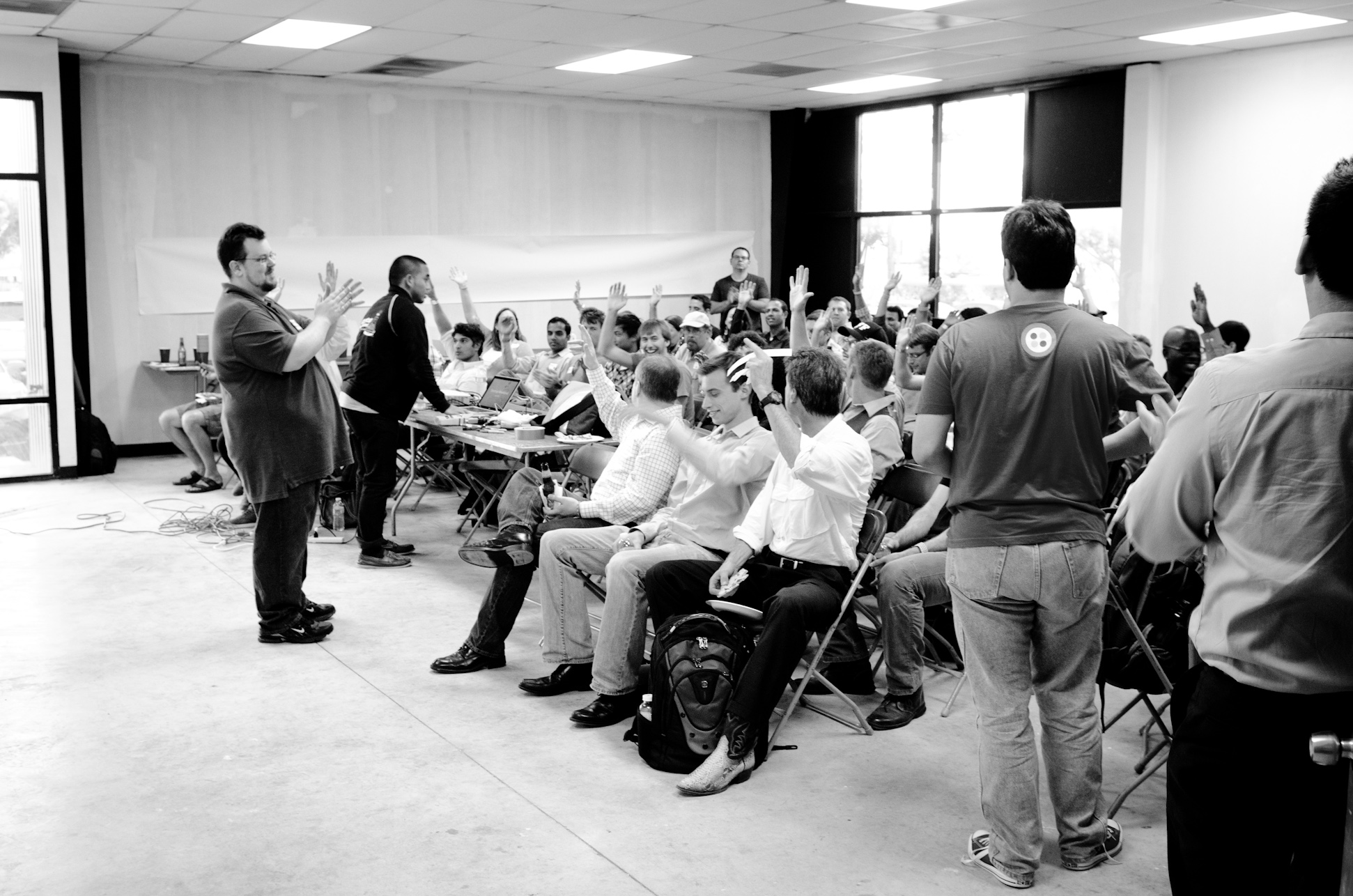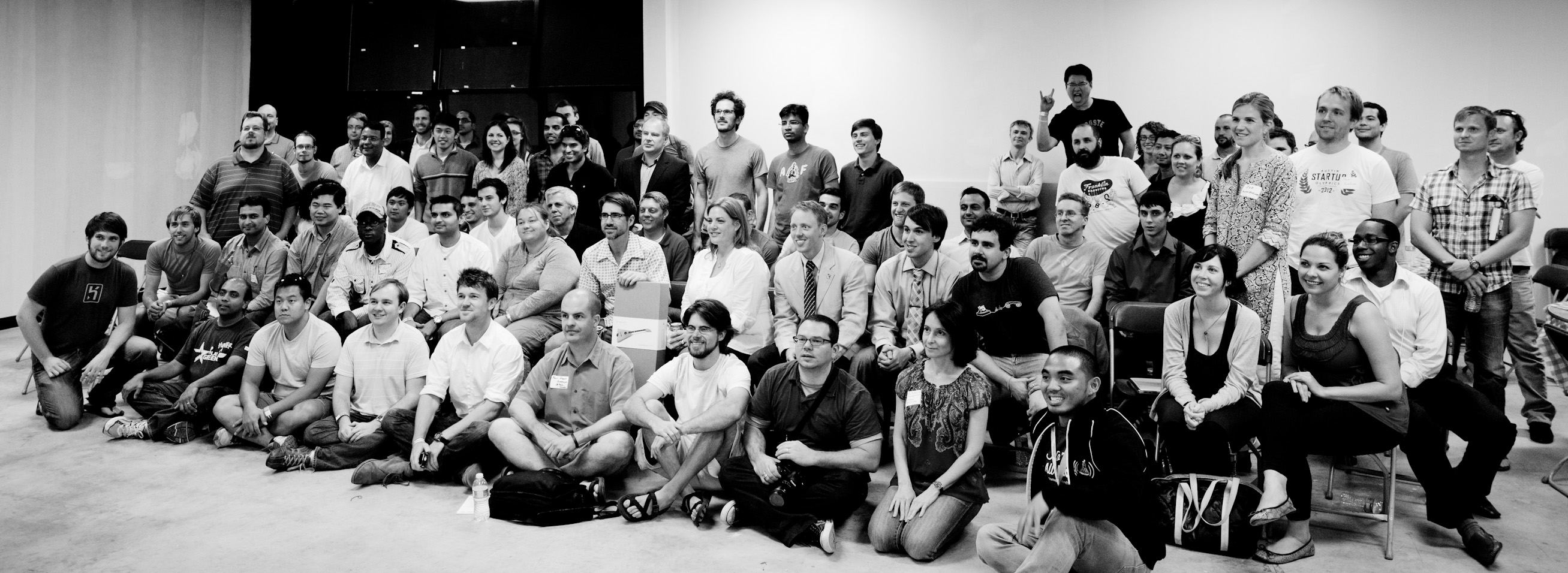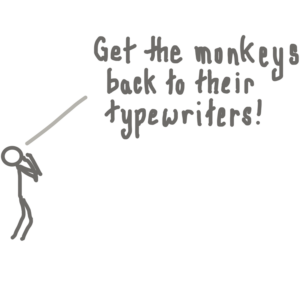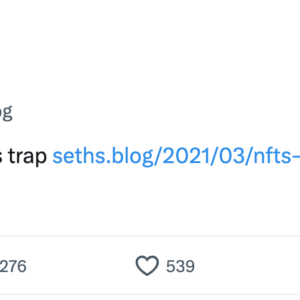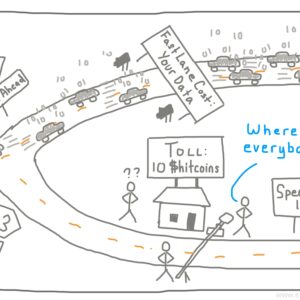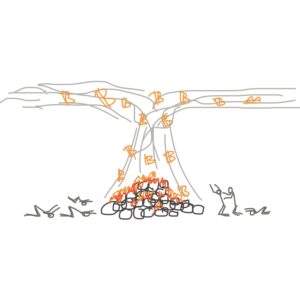Austin Startup Weekend
Day 1
On a sunny Friday afternoon in late March I threw my suitcase and a bicycle into my trunk and trekked the 3 hours to Austin for an event called Startup Weekend. I'd heard about it in Houston just a couple weeks too late but everyone I spoke with evangelized the experience so I vowed to catch the next one I could. I didn't really have a clue what to expect, but I came with an open mind and a lot of curiosity. The idea of a whole weekend focused intensely on startups was just what the doctor ordered after I quit my job to dive into that world.
I was one of the first to arrive at the HubAustin Coworking space a few miles south of downtown and got the chance to see all the participants as they pulled in to register. There was the bubbly businesswoman from Dallas with a big Texas smile, the two local undergrads hungry to make an impact, a former salesman from Louisiana who'd packed up his car for a one-way trip and the SW veteran who'd flown in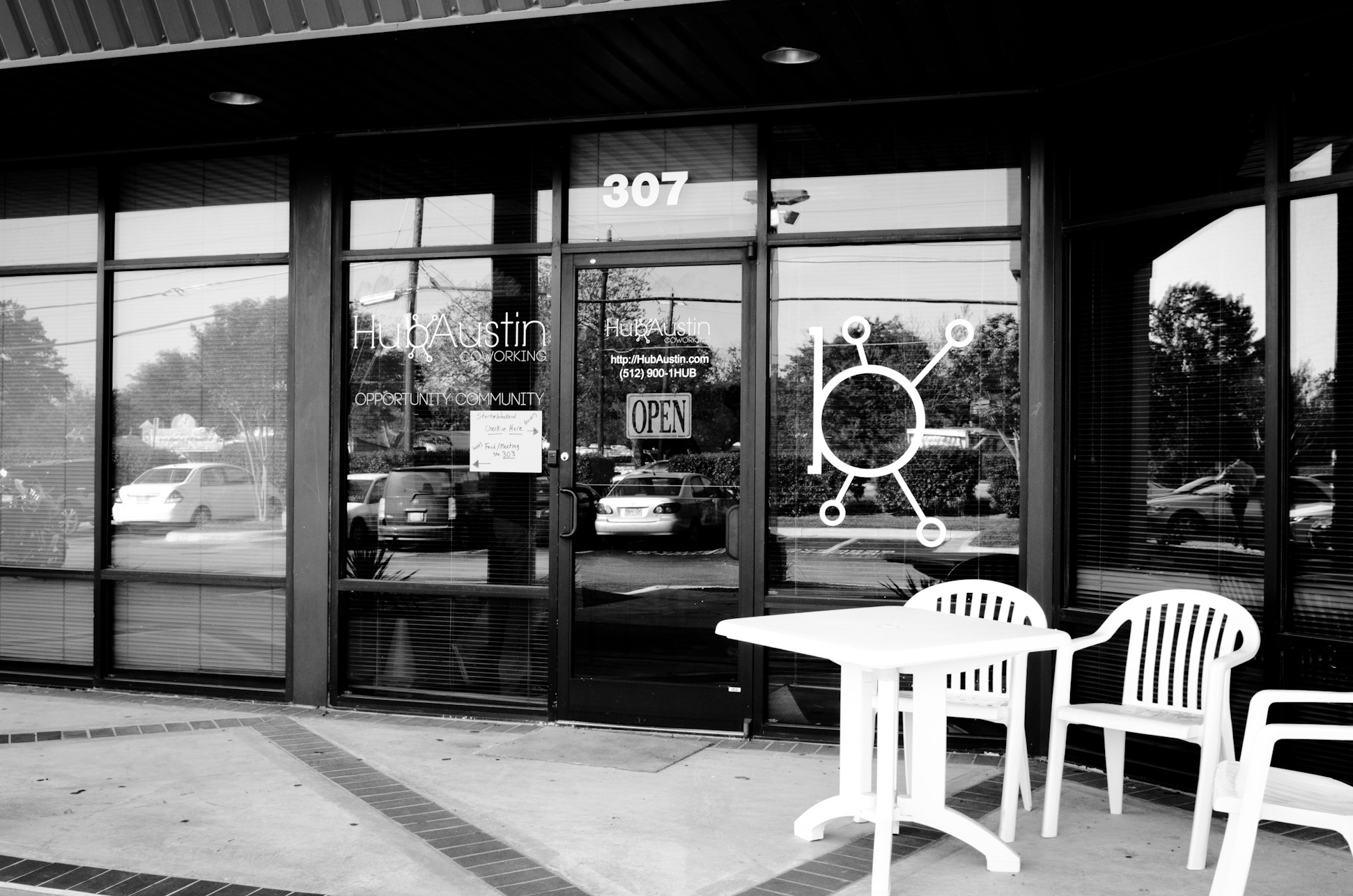 from Oklahoma for his fourth try. They came wearing everything from the flip-flops and shorts typical of Austin to the blazers and slacks of more traditional business professionals. The only common theme was a certain nervous excitement and contagious energy.
from Oklahoma for his fourth try. They came wearing everything from the flip-flops and shorts typical of Austin to the blazers and slacks of more traditional business professionals. The only common theme was a certain nervous excitement and contagious energy.
We assembled in the meeting space and Kyle Simpson, one of the organizers with a powerful voice and a deliberate manner of speaking, quieted the sounds of feet shuffling on the concrete floor and excited voices making introductions. He outlined a theme which I quickly realized came to dominate the experience "“ that the weekend was all about people. It's about the people who would be working together and, as importantly, it's about the participants themselves. "Our goals," he said, "are for you to realize that, 1) I CAN be an entrepreneur, and, 2) I WANT to be an entrepreneur."
Startup Weekend is a global project started in Boulder Colorado in 2009 which recently became an affiliate of the Kauffman foundation and which supports the "development and expansion of entrepreneurship"¦ by immersing [participants] in the process of moving an idea to market."(*) It is meant to compress the process of creating a business into a single 54 hour weekend and break down the mental barriers most people experience between an idea's inception and its execution. It has grown from its humble beginnings to over 175 cities in 100 countries. During the event I attended, there were 25 startup weekends running simultaneously throughout the world.
Joey Aquino is a startup weekend evangelist. The Austin startup weekend was approximately his 12th straight. He's been on the road for four months facilitating and organizing weekends around the country, one of 60 such representatives. Joey walked us through the schedule of events but also tried to prepare us for the emotional rollercoaster ahead with a particularly bumpy line chart"¦ and what other crowd could truly appreciate that?
Surrounded by the smell of pizza which lent the feel of a college dorm, we played a few ice breaker games to warm up and then dove into the pitches. This was designed to get the ball rolling and provide seeds for the companies that would be started in the next few days. About half the people there presented their 60 second pitches and, despite one participant from Dallas telling me earlier that he was "probably too nervous to eat," the pitches generally went smoothly. The whole spectrum was represented, from the social lending application meant to help the world to a tubing service designed to "help get you laid."
It wasn't too hard to spot who had practiced their pitch "“ many of the presenters were clapped off as time expired without having quite gotten to the point but most came prepared to present. As with the earlier ice breakers, I think the point was as much about separating the leaders from the pack as actually delivering on the ideas.
We had just one pitcher who caught that mental block we're all so familiar with and couldn't quite cross the finish line. She politely picked up her belongings and left, something which really surprised me at the time but became an unexpected introduction to the "Survivor"-like side of the weekend. Just as in the real world, at various points along the way, people just kind of disappeared and teams were forced to adjust. It's hard not to view that as flaking out, but I suppose everyone has their own motivation and you've got to plan for it.
After the pitches finished it came time to form teams. The most interesting part of this was the dynamic between the idea champions and developers. Participants were divided by skillset according to whether they best fit as designers, developers, or were nontechnical (business). The teams which gelled su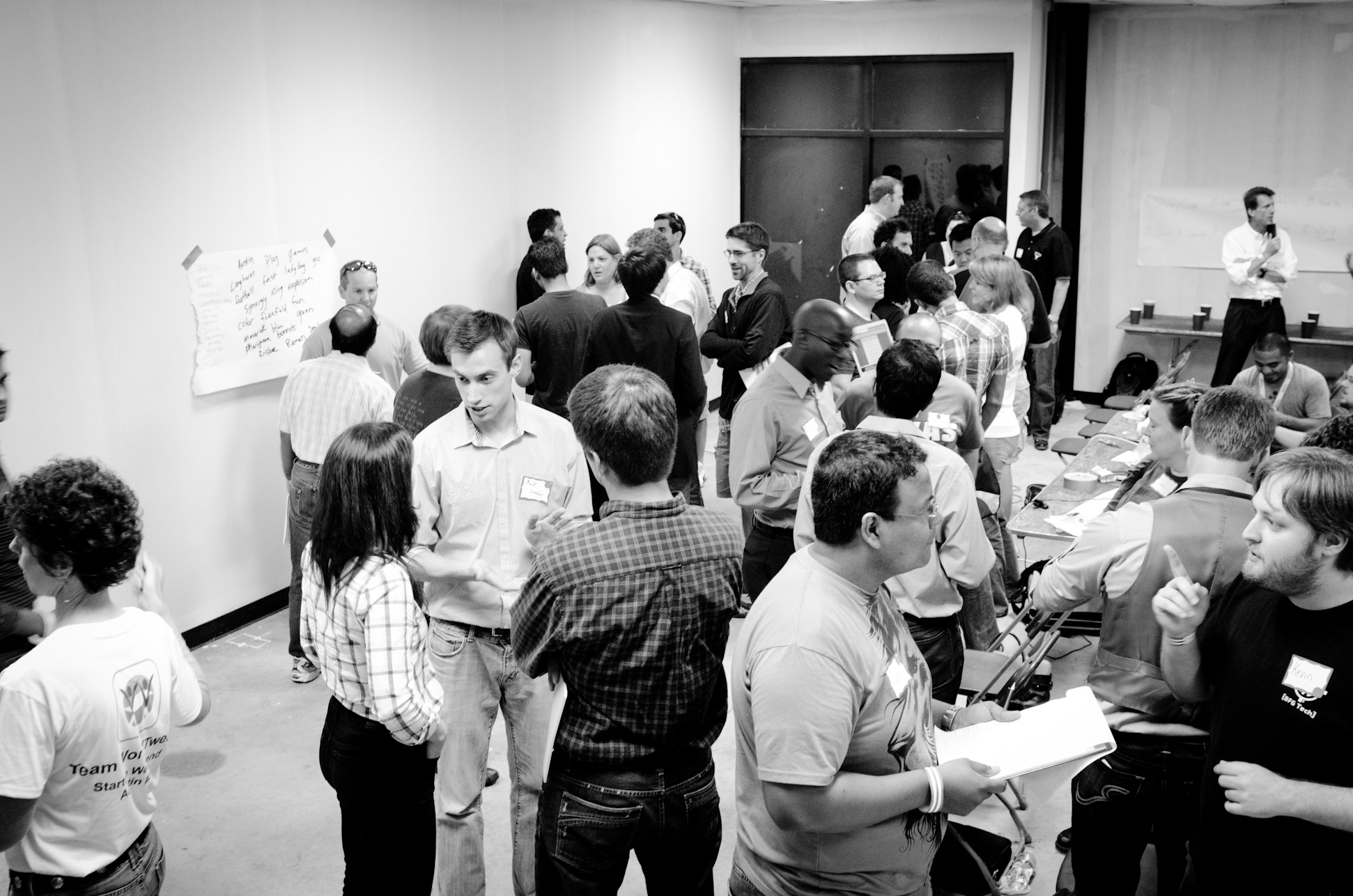 ccessfully were the ones whose founders were able to do more than just sell an interesting idea. They had to quickly identify the skillsets of strong developers and then figure out how to motivate them to want to join.
ccessfully were the ones whose founders were able to do more than just sell an interesting idea. They had to quickly identify the skillsets of strong developers and then figure out how to motivate them to want to join.
Supply and demand worked a lot like it is right now in the real world "“ when asked what their needs were at the halfway point, every single team said "developers" or "developers and designers." Since most of the participants were quite new to the experience and didn't have a good idea of what exactly they needed, they had to take a few shots in the dark but all who succeeded quickly realized that they were really looking to "buy" developers as much as "sell" an idea.
Eventually the 60-or-so participants had formed into about a dozen different teams and they broke off into the coworking space to begin developing their ideas. Energy levels were sky high as people began brainstorming and feeling out the capabilities of their teams. Some seemed to quickly hit a stride and went heads down to work, others were in full-on MBA-mode complete with whiteboards and idea canvases, while still others seemed to have a hard time leaving the excitement of the brainstorming phase.
The buzz continued well after midnight until teams finally began breaking for the night around 1:00. By 3:30 there were only a handful of people still typing away amidst the low beat of techno music and the hum of the AC. Sunrise was only a few hours away when I finally pushed together some cushions and fell asleep.
Day 2: Pivot
Joey had told us at that first meeting that there are three major criteria on which the teams would be judged:
1. Customer Validation [or, "Who is your best customer and do they give a crap enough to actually pay?"]
2. Business Model
3. Execution
The primary emphasis would be on customer validation because one of the primary obstacles that startups face, particularly when they go with a product in hand to get funded, is that they don't actually have a proven market. This weekend, customer validation proved to be one of the most critical hurdles.
As teams began trickling back into the space, often bleary-eyed and slightly disheveled with coffee cups clutched like life preservers in their hands, it was clear that many had experienced their first splash of reality. Some teams were slightly adrift and others had broken like ships upon the rocks, with their members floating free and looking to market themselves to another group. As the morning progressed, more and more groups were finding difficulty justifying their ideas in the marketplace. Luckily, most of those diagnosed their issues early and were able to pivot into a new direction but there were casualties along the way.
You will always need to validate your idea through customers at some point but it is far better to get that out of the way before you've sunk a bunch of effort into developing a product. Few ideas survive their first dose of reality, whether it's the realization that someone else has already done it, there is no possibility of a sustainable revenue model, or the 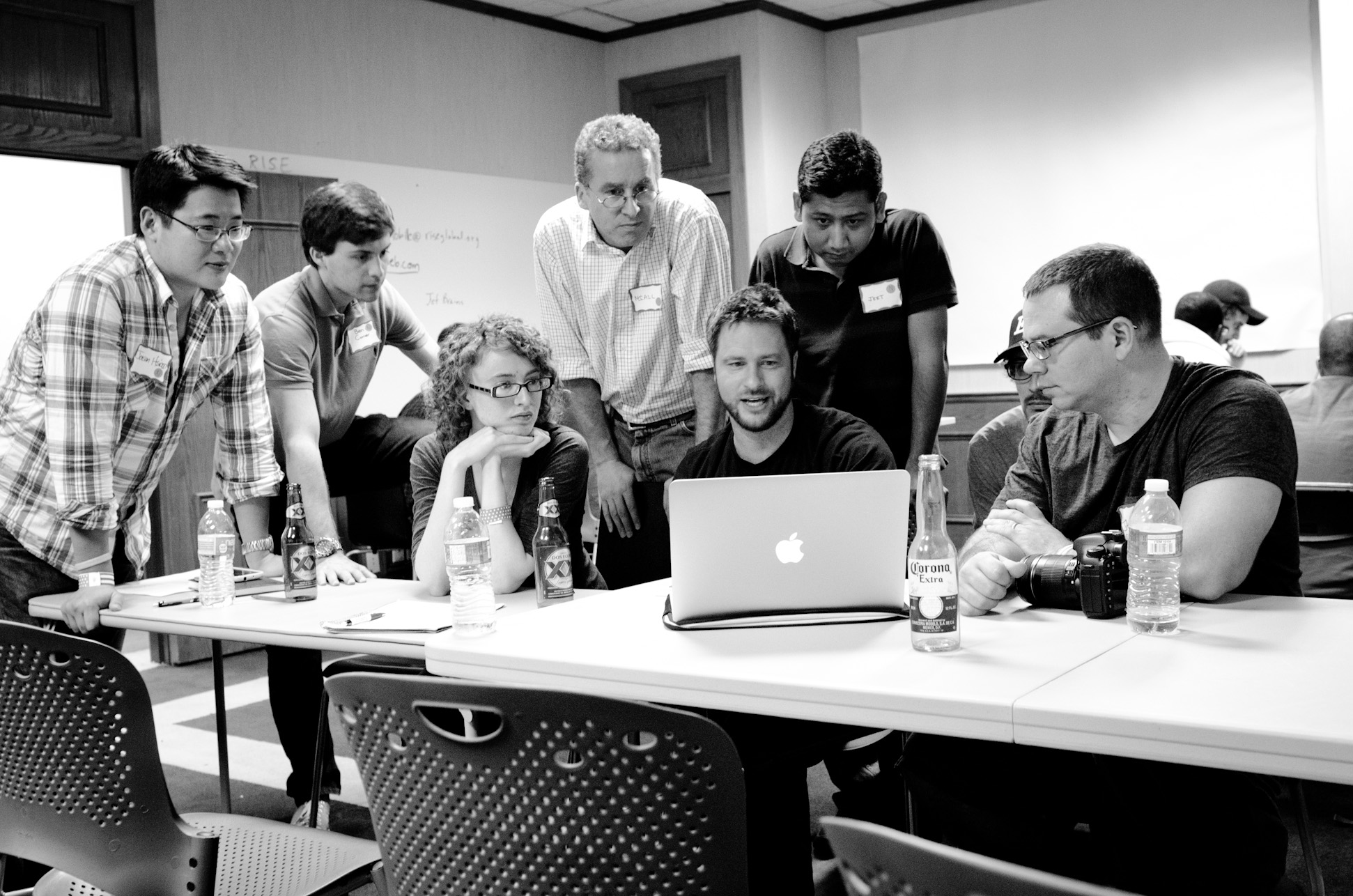 customers you initially expected would love it turned out to be completely indifferent. The microcosm of Startup Weekend was already paying dividends on its parallel to reality.
customers you initially expected would love it turned out to be completely indifferent. The microcosm of Startup Weekend was already paying dividends on its parallel to reality.
Again, I found the emphasis was on developers. Though ideas seemed to live and die by some of the more "business" aspects like customer validation, the most difficult defection for a team to sustain was its developer. There was one highly capable developer who defected to a team with a more promising product and his first group was eventually forced to disband.
Some teams pivoted a half dozen times and others disappeared. But in the middle, a few really found themselves. They figured out their plan, assigned responsibilities, and worked steadily towards execution, even while sometimes taking on additional members who got caught in the tumult. By the end of the day, most groups had found some kind of stability.
Kyle and his HubAustin cofounder Keith Casey, a soft spoken but direct "Evangelist Developer" from Twilio with a wealth of experience in startups and tech, were instrumental in developing that stability. They had a knack for cutting through the unimportant to pierce the heart of the issues affecting the teams. They rarely suggested where things should go but were exceedingly good at forcing teams recognize the weaknesses of their strategies.
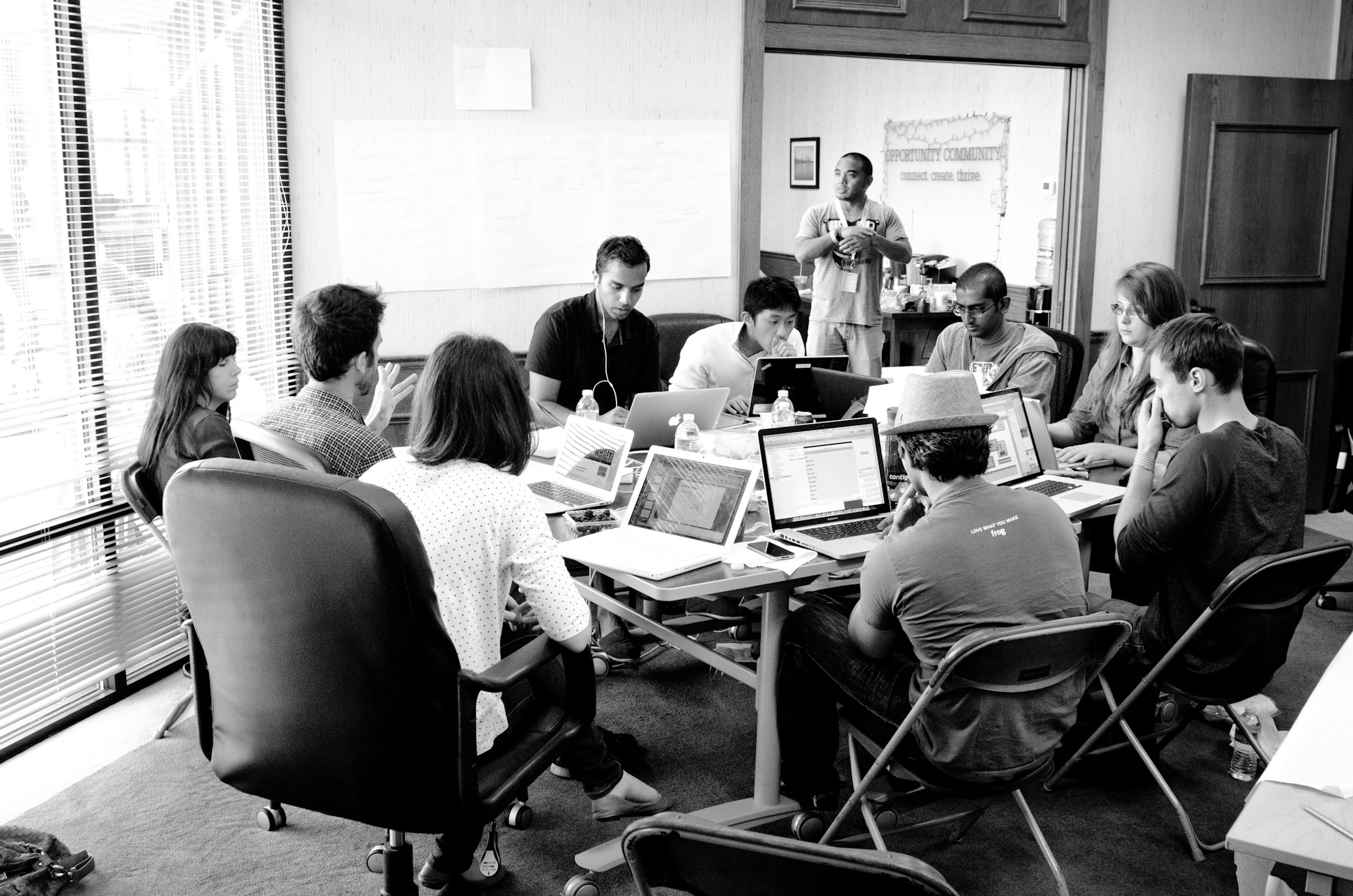 The teams that worked feverishly to develop their product as Saturday wound to a close were often quite different than those who began the day. Even what little validation can be done in a single weekend had proven out some ideas and forced others that initially looked promising to the wayside. As an automotive engineer from Plano later put it, "One of the biggest pitfalls for creative types is "˜I have a solution in search of a problem'". Day 2 was certainly a trial by fire for that mentality.
The teams that worked feverishly to develop their product as Saturday wound to a close were often quite different than those who began the day. Even what little validation can be done in a single weekend had proven out some ideas and forced others that initially looked promising to the wayside. As an automotive engineer from Plano later put it, "One of the biggest pitfalls for creative types is "˜I have a solution in search of a problem'". Day 2 was certainly a trial by fire for that mentality.
Lying in bed in my 1970's apartment-turned-hotel room (sleeping on the floor had quickly lost its appeal), and despite being dog-tired, my brain was still pumping adrenaline and turning at high RPM. It was difficult to shut off after being completely immersed in creative excitement since sunrise. That is inconvenient for the immediate problem of sleep deprivation but it's also why I love these kinds of experiences so much; what other activity could stimulate so much energy and intellect? I fell asleep turning over business models in my head while the teenagers in the room next door loudly killed brain cells with beer and FourLoko.
Day 3: Execute
Energy levels going into day 3 kicked into a different kind of mode. Saturday had been a real low for some but almost everyone who made it to Sunday had found the zone. Some people showed the strains of two nights without much sleep and there was a frayed sort of wildness to the look of others but there was also a growing sense of confidence. The finish line was in sight: demos were that afternoon.
Products began taking form. The gentle hum of productivity was broken around noon by the whooping and cheering when a team's audio recognition software finally worked. It was imitated around the room several times before the whole place broke into chuckles. This was the time for the developers and designers to shine and show off their accomplishments.
As demo hour approached, almost all the teams finalized their pitches. A few didn't quite pull it together"¦ One poor founder waited and waited but his two teammates never showed up. Those who stuck around anyway without presenting were generally contemplative and appreciative of the chance they'd been given. To a one, they said it was well worth it.
Demos began in front of a packed room and a small panel of local entrepreneurs and investors. The thing that surprised me the most, despite having followed their development myself, was how truly professional many of the pitches and products looked.
Study Styles, an application designed to identify student learning styles and adapt lessons accordingly, 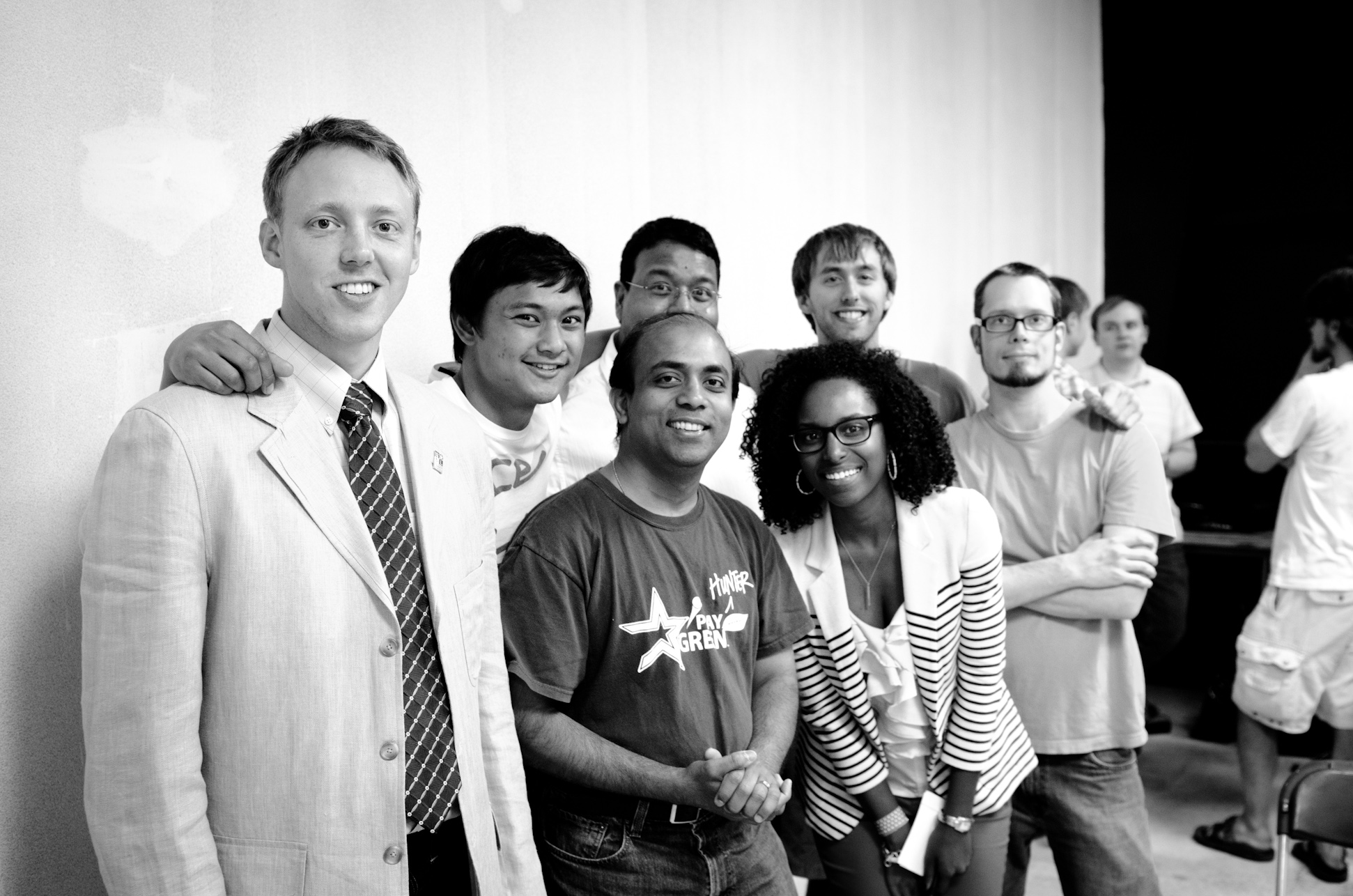 brought on their speaker very late in the process but he fielded questions from the judges like a champ. Spa Deals demonstrated a functioning app with which a stylist could fill cancellations at deeply discounted rates by calling it in and creating a mobile push notification. JoinAStartup was already receiving signups for its matchmaking platform, which had debuted with some creative headlining on Hacker News the night before. TalentGenuity presented a slick and promising way to profitably leverage your social networks to disrupt the traditional channels of recruiting.
brought on their speaker very late in the process but he fielded questions from the judges like a champ. Spa Deals demonstrated a functioning app with which a stylist could fill cancellations at deeply discounted rates by calling it in and creating a mobile push notification. JoinAStartup was already receiving signups for its matchmaking platform, which had debuted with some creative headlining on Hacker News the night before. TalentGenuity presented a slick and promising way to profitably leverage your social networks to disrupt the traditional channels of recruiting.
RevoStars had kept a low profile through the weekend but presented an ambitious attempt to link true talents via video sharing with venues that typically had to expend considerable resources to locate them. HostFamily sought to cultivate trust among prospective host families and astonished the judges with their ownership of a high value domain name, to which founder Wade Floyd replied simply, "I have a skill."
Living Games put a business model to what had been a side project of one of their developers. They envisioned an iteratively-released gaming environment reliant on user feedback and sharing. Audio Articles offered users professionally read news articles in channels of their choice.
Two groups in particular had found a lot of momentum through the weekend. TrailerQ put together a functioning application which allowed movie goers to make a ticket purchase decision upon seeing a preview for the first time. Their application debuted a polished design interface and a really neat piece of recognition technology.
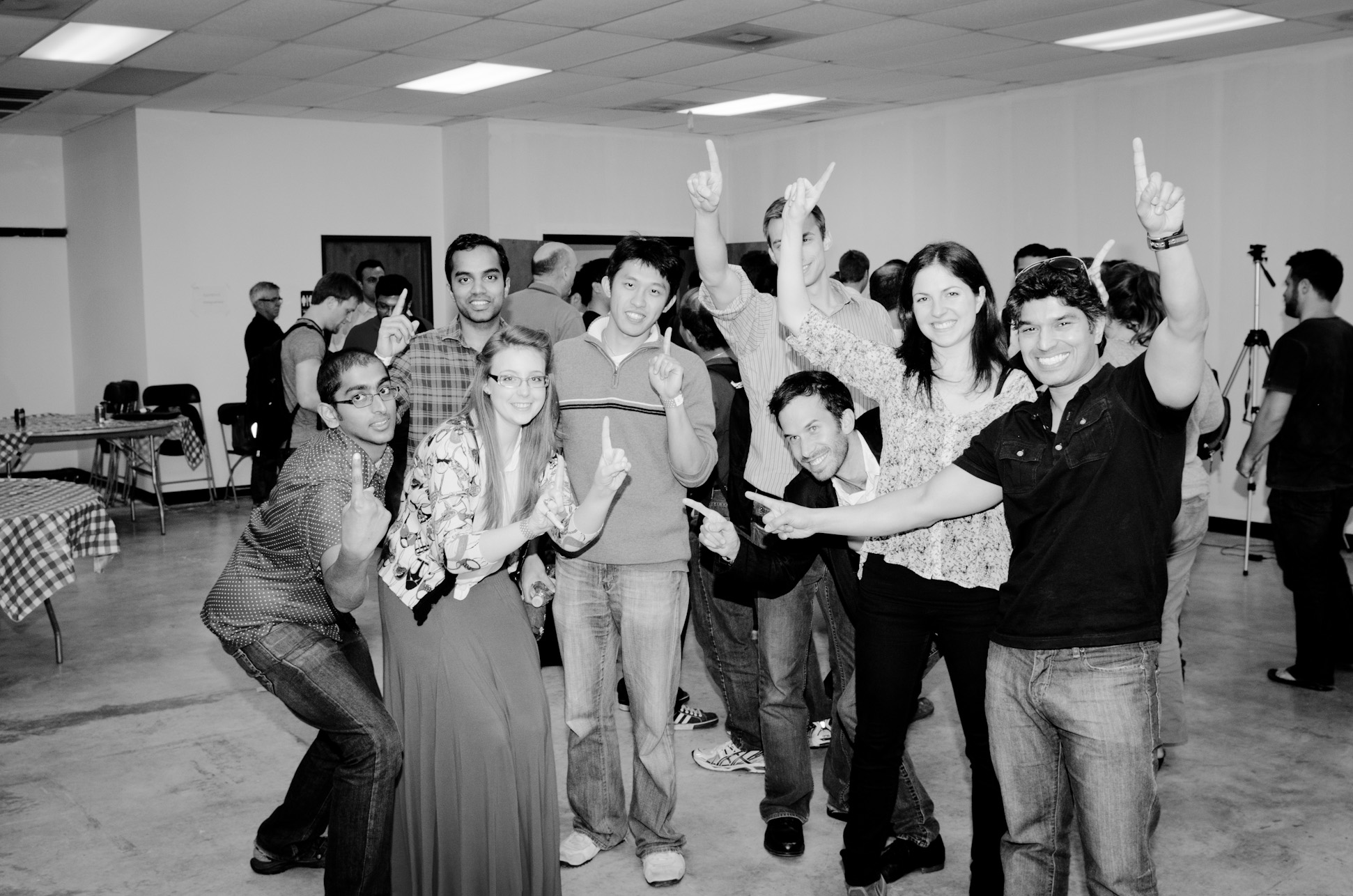 The weekend's winner was a group that not only produced a functioning application with a professional interface, but they had already acquired paying customers! TrainerLinkup, headed by fitness buff Melanie Weinberger, brought community rating and vetting to the otherwise roulette-like activity of selecting personal training services. They recruited a well balanced team (which grew over time), distributed responsibilities effectively, and executed efficiently. Job well done.
The weekend's winner was a group that not only produced a functioning application with a professional interface, but they had already acquired paying customers! TrainerLinkup, headed by fitness buff Melanie Weinberger, brought community rating and vetting to the otherwise roulette-like activity of selecting personal training services. They recruited a well balanced team (which grew over time), distributed responsibilities effectively, and executed efficiently. Job well done.
The judges, like the mentors, were very good at pulling out the weaknesses of the pitches. A few of the concepts didn't quite get the point across and elicited questions like "So what is your value proposition?" and, "Tell me again what you're doing?". Some tried, but it's hard to hide an idea lacking true validation from experienced professionals.
Afterward
Once the awards had been announced, things broke down pretty quickly. People grabbed their things, exchanged last minute contact information, and began dispersing to the four winds. Most had a sort of blissful, shell-shocked look about them. Sleep had been traded for caffeine and adrenaline along the way and, with the big finale finally passed, Startup Weekend's participants looked ready for a good long sleep before fully digesting what they'd been through.
Even still, many of us hadn't quite had enough and we grabbed a celebratory drink at Doc's down the road. There was a lot to process. Three days felt like three months. I entered the weekend unsure of what to expect and I left with a sense of gratitude for having been able to see the spark of an idea form into a fledgling business. It gives me a lot more confidence in the path I've chosen going forward.
Other lessons were as valuable. As Kyle put it at the very beginning, this weekend was about people. Teams lived and died by the quality and commitment of their members. Having the right talent blend, and specifically getting buy-in and excitement from developers, was crucial to executing properly.
As important was validating the idea early in the market. In the words of Paul Graham, "Make something people want." The implied challenge is: "Don't take that on faith, GO FIND OUT!" Take your idea into the real world and see how it survives interaction with real potential customers. You'll have to do that eventually no matter what and earlier is better so you can iterate or pivot as necessary.
Having strong mentors is also crucial. After seeing how Keith, Kyle, John, and all the guest mentors were able to break the group-think and self-delusion that can take ahold of the best of us, I have a new appreciation for the importance of strong reciprocal relationships with more experienced investors and entrepreneurs. It's really just another way of making sure you test your idea in the real world so you're not just pushing forward with a "cool" product.
When I asked Kyle about his motivation for putting together the weekend, he repeatedly said that it was about the people. The Austin startup community was fantastic. We had great mentors, sponsors, and turnout. Every startup that was born over the weekend got their name put out there and was welcomed into the local ecosystem. It was a great showcase for the kind of supportive atmosphere he and Austin are seeking to cultivate.
It's all about people.
Make something customers want.
Validate your idea.
This weekend I was an observer and took away so much by being able to see the big picture. Next time, though, I'm going to participate. It's just too exciting to know how very possible it is to launch a business if you can just identify the right need and gather the right team.
The drive home was a journey through the entire scale from exuberance to bleary-eyed exhaustion. The prospect of returning to the real world at 5:30 the next morning seemed both foreign and all-too-close. This time I had no trouble falling asleep as soon as my head hit the pillow.
I never did get the chance to ride my bike.
